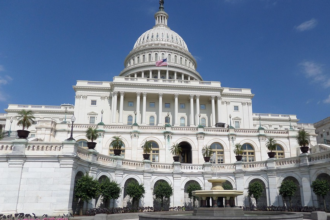Maria Margarita Rojas, a Texas midwife, has been taken into custody on charges of conducting illegal abortions and running a chain of illegal clinics in the Houston region. Rojas has been charged with performing an abortion and practicing medicine without a license, which is against Texas abortion law, according to the office of Texas Attorney General Ken Paxton.
According to authorities, Rojas, 48, operated many clinics in Houston where she performed abortions in violation of the law. She is also said to have hired unlicensed workers to help her with these treatments. She was arrested because these clinics were operating illegally, according to the Texas Attorney General’s office. Rojas’ case has generated discussions on both sides of the abortion question. While some contend that this is an illustration of Texas’ stringent anti-abortion laws, others think she was delivering essential medical care in underprivileged areas.
What legal consequences does Rojas face?
Rojas faces second-degree felony charges, which carry a maximum 20-year jail term and a $10,000 fine if found guilty. State officials can also impose a fine of at least $100,000 per violation under the Texas abortion law, specifically the Texas Human Life Protection Act, which was passed in 2021 and outlaws abortion in the majority of situations.
According to legal experts, this case may set a precedent for similar convictions in the future under Texas’ abortion ban. Although Rojas is the first midwife to be charged in this way, there is growing concern that other healthcare providers may also be singled out. Given the seriousness of the accusations and the wider ramifications for the state’s reproductive rights, several legal experts believe that this issue might even be brought before higher courts. Pro-life activists, meanwhile, have applauded the state’s dedication to upholding Texas’ abortion ban, claiming that severe sanctions will discourage others from trying to carry out illegal abortions.
How has the Texas Attorney General responded?
Attorney General Ken Paxton stressed the state’s dedication to upholding its stringent abortion regulations in a news release on Monday. “Texas abortion law protecting life is clear, and we will hold those who violate it accountable,” he said. “I will always do everything in my power to protect the unborn, defend our state’s pro-life laws, and work to ensure that unlicensed individuals endangering the lives of women by performing illegal abortions are fully prosecuted.” Paxton also explained that abortion doctors, not patients, are criminally liable for illegal procedures under Texas law.
Paxton’s remarks support the state’s strict abortion policies, and his administration has stated that it will vigorously prosecute anyone who tries to break the law. Anti-abortion campaigners, who contend that the measure is required to safeguard fetal life, have praised his stance. Reproductive rights organizations, meanwhile, have denounced the prosecution, claiming that it is a component of a broader attempt to limit access to necessary reproductive treatment.
What are the current abortion laws in Texas?
Once a fetal heartbeat is detected, which usually happens about six weeks into a pregnancy—often before many people even realize they are pregnant—physicians are not allowed to conduct an abortion in Texas. There are no exceptions for rape or incest under Texas’ abortion statute; exceptions are only granted if the expectant patient’s life or health is in danger. The Texas Supreme Court unanimously dismissed a lawsuit from 20 women last year who claimed that this legislation had prevented them from getting medically necessary abortions.
Texas has some of the harshest abortion restrictions in the nation, and this has had a significant effect on the state’s reproductive healthcare system. Many clinics that provide abortion services have shuttered after these laws were passed, depriving many people of access to care. The ramifications of these laws are extensive, according to advocacy groups, especially for those with low incomes and those living in remote regions who do not have the resources to go out of state for an abortion. Abortion rights opponents counter that these regulations are a reflection of Texas voters’ will and the value placed on preserving fetal life.
Where did Rojas allegedly operate?
According to authorities, Rojas, also known as “Dr. Maria,” operated many clinics in northwest Houston where she performed unlawful abortion procedures and hired unlicensed workers. The Texas Attorney General’s office has filed a temporary restraining order to close the clinics.
Some people think that her prosecution is a reflection of the inequalities in healthcare access because her clinics catered to a low-income, Spanish-speaking community. Some officials maintain that she was addressing a critical need in reproductive healthcare, while others contend that she was breaching the law. In addition to the legal concerns that medical practitioners face when trying to offer reproductive care under restrictive regulations, this case has brought attention to the restricted options available to people seeking abortion services in Texas.
What do her colleagues and community say?
Rojas worked part-time at a birth center run by midwife Holly Shearman, who expressed disbelief at the arrest. Shearman stated, “I don’t believe it for one second,” characterizing Rojas as a devoted Catholic who offered prenatal care to a low-income, mostly Spanish-speaking neighborhood.
Shearman’s observations have been supported by other coworkers and patients, who have said that Rojas was a kind carer who devoted her life to assisting women. Some have noted that marginalized areas are disproportionately impacted by the attack on abortion providers, leaving many without access to quality healthcare. Pro-choice advocates contend that instances such as these demonstrate how Texas’ abortion law criminalizes medical professionals who attempt to assist their patients in addition to banning abortion.
Is this the first prosecution under the Texas abortion ban?
One of the earliest criminal prosecutions under the Texas abortion statute is thought to have been Rojas’ arrest. She was arrested in Waller County, and whether she has obtained legal counsel is unknown.
Legal experts predict that as long as the state’s stringent abortion regulations are upheld, similar cases may soon follow, and the case is likely to create a precedent for future prosecutions. Some worry that this would result in further surveillance of medical professionals and expectant mothers, making access to reproductive care even more difficult. Some believe that this is an essential step in making sure that abortion rules are obeyed and that those who break them face consequences.
How does Texas compare to other states on abortion enforcement?
Texas has vigorously pursued legal action against abortion providers. A New York-based abortion provider was sued by the Attorney General’s office last year for allegedly sending abortion drugs to a Texas citizen. The same physician, Margaret Daley Carpenter, was charged with unlawful abortion in Texas earlier this year. However, abortion doctors who help patients from out of state are protected by shield laws in New York. Kathy Hochul, the governor of New York, has vowed to prevent Carpenter from being extradited to Texas, describing the case as “outrageous” and accusing Republican lawmakers of trying to limit access to abortions across the country.
The disparity between Texas and places like New York underscores the widening gap in access to abortion in the United States. Others have taken action to increase access and shield medical workers from legal ramifications as states like Texas continue to tighten down on abortion providers. The future of abortion rights in America will probably be shaped by this ongoing legal dispute, with judges having a significant say in how far states can restrict access to reproductive healthcare.








